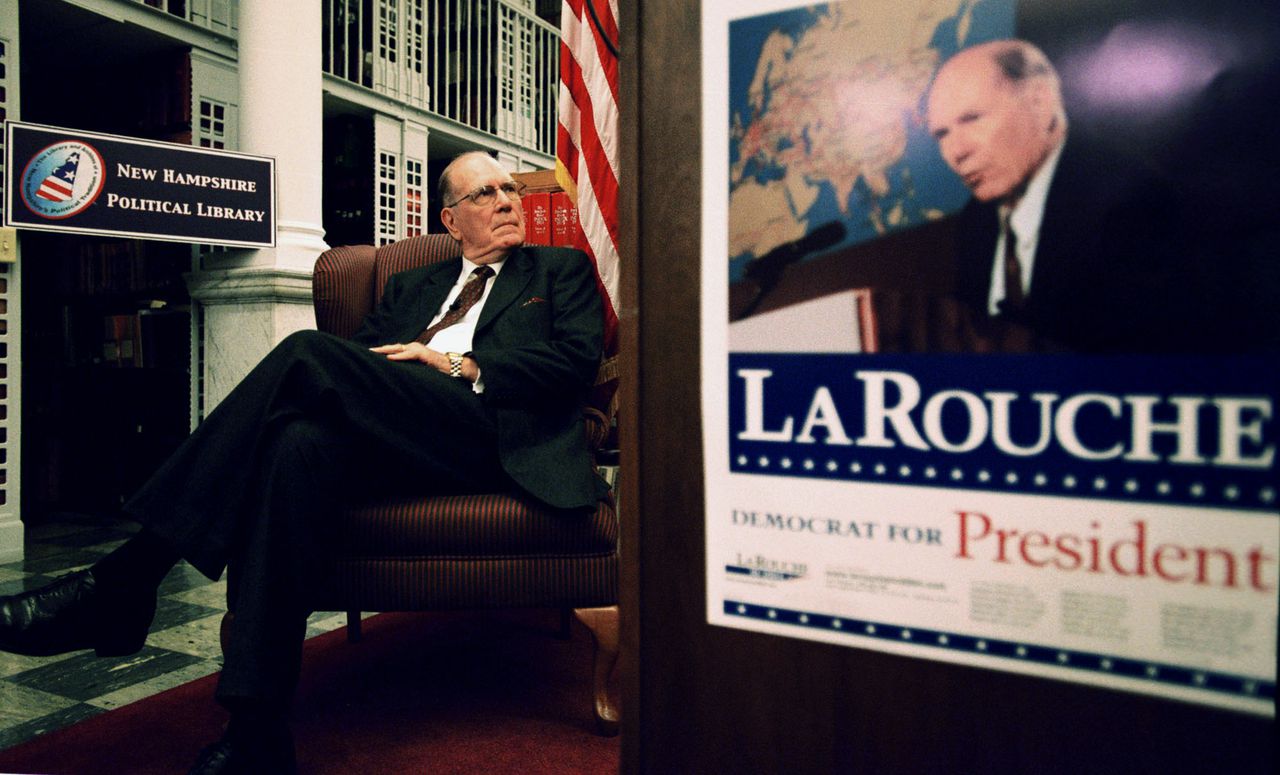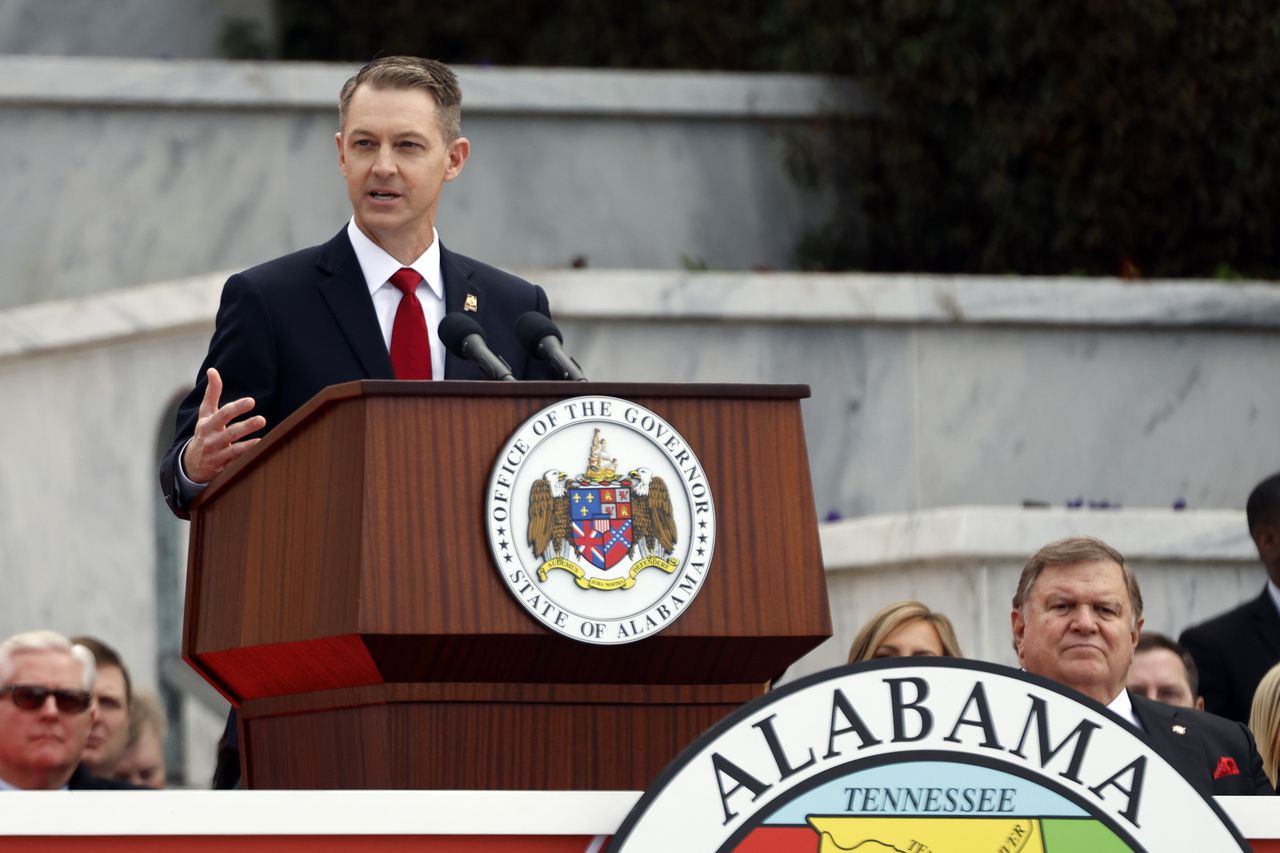How Trump could ‘exploit’ Alabama’s sore loser law
Lyndon LaRouche might’ve been a political gadfly and conspiracy theorist who appeared on presidential ballots every year from 1976 to 2004.
But it was his appearance on Alabama’s 1992 Democratic primary and general election ballots that could give former President Donald Trump plenty of ammunition should he want to run as an independent candidate in 2024, according to a longtime political analyst who has long tracked ballot access issues.
At issue is whether Alabama’s “sore loser law,” utilized to keep former Democratic presidential hopeful Roque “Rocky” De La Fuente off the 2016 general election ballot, and which could prevent Trump from mounting a third-party candidacy if he chooses to do so in two years.
“There are a lot of ambiguities,” said Richard Winger, who has written about sore loser laws for his publication, Ballot Access News. “There is a lot of controversy on this.”
The latest issues were raised in recent national articles naming Alabama as one of a few states with a sore-loser law that prohibits a presidential candidate, who lost in a primary election, from appearing on the general election ballots as an independent or third-party candidate.
Trump has suggested that he would consider mounting a third-party campaign if he doesn’t win the Republican presidential nomination next year. Though he is an early frontrunner for the GOP nomination, he is expected to face a fierce challenge from Florida Gov. Ron DeSantis, who has not yet announced if he will run.
Alabama: Not an issue
Alabama Secretary of State, Wes Allen speaks during the inauguration ceremony on the steps of the Alabama State Capital, Jan. 16, 2023, in Montgomery, Ala. (AP Photo/Butch Dill, File)AP
Republican Alabama Secretary of State Wes Allen said Monday that amending the state’s sore loser law is not part of his office’s legislative agenda. Allen, a former state representative from Troy, was elected to the secretary of state’s office in November and replaces John Merrill, who was term limited.
“Not one single Alabamian has approached this office since I have been Secretary of State regarding amending the statute,” Allen said to AL.com in an email response. “Not one person ever approached me about it on the campaign trail as I traveled across the state for 18 months meeting with voters in every county in Alabama.”
Alabama could be an interesting player if the Trump third-party scenario evolves. Some of the former president’s highest vote percentages came from Alabama during the 2016 and 2020 presidential contests, and Morning Consult for years placed Trump’s 28-point net approval rating in Alabama as among the highest in the nation.
Alabama carries 9 electoral votes, and the state has backed Republican presidential candidates every year since the 1980 presidential election.
Sore loser laws exist in enough stats that Trump won in either 2016 or 2020, that could make it difficult for him to achieve enough electoral votes to win in 2024 as an independent, according to a study published recently in the Harvard Journal of Law & Public Policy.
The hypothetical scenario might not matter. Trump is comfortably leading the Republican field in Morning Consult’s 2024 GOP primary tracker. On February 28, the former president was backed by 48% of potential Republican primary voters with DeSantis at 30%. Trump’s support rose to 53% on Tuesday, and DeSantis dropped to 28%, following last weekend’s Conservative Political Action Conference. Former Vice President Mike Pence and former South Carolina Gov. Nikki Haley are in the single digits.
Even if Trump were to lose, he could face backlash from Republicans. Ronna McDaniel, the Republican National Committee Chair, said she hopes to have candidates sign a pledge to support the GOP nominee as a requirement to participate in primary debates.
Trump could prove disruptive to the Republicans hopes of taking back the White House if he loses the primary. Third party candidates often affect tight presidential contests, namely Gary Johnson and Jill Stein in 2016, Ralph Nader in 2000, and H. Ross Perot in 1992.
Inconsistent precedence

In this Nov. 12, 2003, file photo, Democratic presidential candidate Lyndon LaRouche Jr. awaits his introduction before speaking at the New Hampshire State Library in Concord, N.H. LaRouche died Tuesday, Feb. 12, 2019. (AP Photo/Lee Marriner, File)AP
Winger said that if DeSantis or another GOP hopeful wins the GOP nomination, Trump could be positioned to challenge sore loser laws in Alabama and beyond based on inconsistent precedence.
He said that John Anderson was allowed to run as an independent candidate in Alabama during the general election in the 1980 presidential contest after having run as a Republican hopeful during that year’s primary election.
Twelve years later in 1992, Alabama allowed LaRouche onto the general election ballot as a member of a third party called “Democrats for Economic Recovery” despite having appeared that June on Democratic primary ballots. LaRouche finished with 641 votes in Alabama during the general election, or fewer than a half of a percent of the overall total.
De La Fuente did not get that same chance in 2016 and sued Merrill when he was omitted from the general election ballot due to the state’s sore loser law. The case was dismissed after the election by Chief District Judge W. Keith Watkins of the Middle District of Alabama.
De La Fuente, in his complaint, cited the LaRouche example and argued that Alabama had arbitrarily enforced its sore loser law that dated back to 1975.
Watkins argued that denying general election ballot access to a primary loser “no more imposes an improper qualification on office than does denying the office itself to a general election loser.”
The judge also said that primary elections “are not stand-alone contests,” but rather an integral part of the entire election process.
“Barring a primary loser from the general election ballot is no different from excluding a would-be independent candidate who fails to collect the requisite number of signatures – in both instances, the candidate failed to clear a threshold procedural hurdle, thus dooming his run for office,” Watkins wrote. “At root, the sore loser law regulates how to access the ballot, not who can access it.”

Supporters hold a flag as former President Donald Trump speaks at the Conservative Political Action Conference, CPAC 2023, Saturday, March 4, 2023, at National Harbor in Oxon Hill, Md. (AP Photo/Alex Brandon)AP
The Harvard Journal of Law & Public Policy article argues that states are not bound to permit sore loser candidates in 2024 solely because they did so previously. The article claims that current state officials are not bound by decisions from officials who are no longer in office, and that past failure to enforce sore loser restrictions against presidential candidates “is not a reliable guide to future enforcement.”
Trump, Winger said, will blast away at the inconsistent past enforcement of sore loser laws if the need arises.
“Can you imagine what he would say?” said Winger. “They let John Anderson be a sore loser in all 50 states, but they wouldn’t let me? He could exploit this.”
